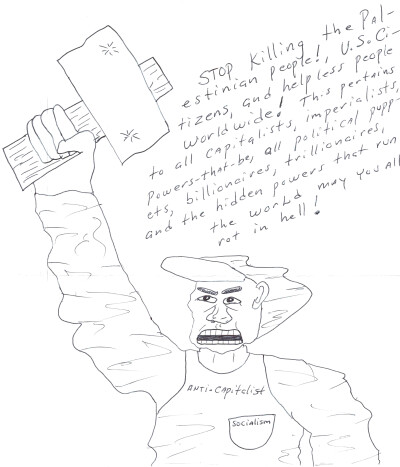
How to Negotiate

In a recent episode of the RevLeft podcast, a couple of student leaders reflected on their experiences so far in the student encampments demanding university divestment from I$rael. Here we will briefly summarize some of their lessons learned and connect them to similar experiences in the prison movement.
The biggest regret expressed by one of the students, and echoed as important by the other, was conceding to closed-door negotiations with the administration. A comrade once described a campaign that ended up with a large group of prisoners being in a room with administration. The administration expressed that they had heard their demands and would go deliberate on them and let them know their decision. The comrade correctly saw the risk of divide and conquer and kept everyone there until the admin would commit to how they would actually address their very reasonable requests. When making demands of the powers that be it is important to mobilize the masses as fully as possible to participate. Behind closed doors, individual negotiators, whether due to inexperience, opportunism, fear, etc, will not get the same outcome.
A related demand that the admins often made of the student encampments was to exclude community members from the struggle on campus. This similarly helped to isolate students, potentially from more experienced organizers in particular.
Another big critique one student made of eir group was too much hemming and hawing over escalation of building occupations to the point of losing the momentum they had.
The students discussed the varied interests of different parties involved, whether on campus or off-campus students, staff with tenure or not, income levels, etc. This is paralleled in prisons where people with different amounts of time often have very different attitudes towards things, and some groups are often granted privileges by staff in order to divide and conquer. Related to this is the fact that many of the students didn’t know each other at all, so there was a lack of trust and familiarity. This might be easier to overcome in prison, but speaks to the need for developing relationships with others and organization prior to events like this.
The students mentioned how they should have studied the history of how their institutions responded to similar events in the past more. We offer the pages of ULK to document the history of the prison struggle for others to study.
Finally, they self-criticized for succumbing to reformist language that was coming from the administration in their own outreach. They stressed the importance of going into a movement with established principles in order to stick to the goals and the messaging when things get hectic and confusing. They stressed how much language matters.
These are very universal lessons that we can all benefit from better understanding. We encourage our readers to write in with more examples of lessons learned from their experiences of fighting oppression so we can all get better at what we do.
NOTES: Revolutionary Left Radio, 5 June 2024, Student Encampments for Palestine: An Interview with Student Organizers.








